Apple has acquired a considerable number of companies over its lifetime, with the purchasing pace increasing as time marches on. The iPhone producer has, for the last four years, acquired between 15 and 20 companies per annum, and is constantly on the lookout for potential targets.
The extremely large cash reserves mean Apple has practically no limit in terms of how big a company it can buy, with CEO Tim Cook advising "There's not a size that we would not do, based on just the size of it. It's more of the strategic value of it."
Despite the pace, it is not always clear if Apple has acquired a company, as in the majority of cases Apple tries to keep the transaction as quiet as possible. Aside from rare cases where Apple does confirm an acquisition, reports typically rely on insider leaks, both from within Apple and the purchased company, as well as regulatory filings and public notices that provide hints as to what is taking place.
Sometimes, news of an Apple acquisition could surface months after the deal was completed.
As with many other sensitive areas of its business, Apple is typically reluctant to speak out about such transactions taking place. A boilerplate statement is usually provided to such queries, with the sentence "Apple buys smaller technology companies from time to time, and we generally do not discuss our purpose or plans." The statement is sometimes taken as a partial confirmation that the rumored acquisition has in fact taken place.
Despite Apple's appetite for smaller companies, it has been known to purchase larger ones that suit its business. There has always been, and likely always will be, rumors of Apple wanting to acquire Disney. So far, these rumors have never panned out.
2023
BIS Records
September 2023
BIS Records was a fifty-year-old classical music label that also ran the talent scouting firm Platoon. This is the first record label Apple has ever acquired, expanding the music available for the Apple Music Classical catalog.
WaveOne
February 2023
Value: Unknown
WaveOne used artificial intelligence to compress video while retaining maximum detail in important objects like faces and text. The company claimed to be able to reduce a video file by half using its techniques without losing video quality.
2022
Apple has reportedly slowed its acquisition rate over 2021 and 2022. It spent $33 million on acquisitions in its fiscal year 2021 and $169 million in 2022 as of August. Of course, not every acquisition is known publicly.
AI Music
February 2022
Value: Unknown
AI Music used artificial intelligence to produce algorithmically generated music. Apple may use the technology to bolster its offerings across Apple Music, Apple Fitness+, or Siri.
2021
Primephonic
August 2021
Value: Unknown
Primephonic was a classical music streaming service built for classical enthusiasts. Its focus on curated content and search made it stand out among other classical music services.
Apple created a separate classical music app using Primephonic as a base. It released in March 2023.
Curious AI
January 2021
Value: Unknown
Curious AI was an AI startup focused on building artificial intelligence that would be used for autonomous and interactive technologies.
2020
Scout FM
September 2020
Value: Unknown
Scout FM uses AI to curate and deliver podcasts to users. A popular app on both iOS and Android, Scout FM provided podcasts in a more digestible format. Whereas apps like Apple Podcasts require listeners to select shows, the startup offered themed "channels" with custom curated content in a system that resembled terrestrial radio programming.
Mobeewave
August 2020
Value: $100 million
Mobeewave's technology employs NFC communications to enable users to conduct payments by tapping a compatible credit card on a smartphone. Consumers can also trigger transactions by bringing two smartphones within close proximity of each other.
Such a technology could be applied to future Apple devices to allow person-to-person Apple Pay payments via a tap or touch.
Spaces
August 2020
Value: Unknown
Spun out from DreamWorks Animation in 2016, Spaces began life as an independent company by creating location-based VR experiences including "Terminator Salvation: Fight for the Future."
The company was hit hard by the coronavirus and had to close down, but Apple purchased the company on its way out. VR environments and experiences will likely be a big feature of a future Apple VR headset.
Fleetsmith
June 2020
Value: Unknown
Fleetsmith is an enterprise device management company. Apple has an interest in bettering their education and business software using expertise and technology from such acquisitions.
Inductiv
May 2020
Value: Unknown
Inductiv developed a system that relies on AI to automatically identify and correct errors in data. The acquisition seems to be aimed at gaining the employees and the technology developed by the company.
NextVR
May 2020
Value: Estimated $100 million
NextVR is a live events company that provides sports, concerts, and other live VR content to headset manufacturers such as Facebook's Oculus.
Apple is invested in AR and VR experiences and acquiring the company brings on more engineers and patents to work with.
Voysis
April 2020
Value: Unknown
Voysis specialized in improving natural language based processing in virtual assistants. The company was able to reduce the footprint of their solution to 25MB of memory, ideal for local voice processing.
Dark Sky
March 2020
Value: Unknown
Dark Sky is a popular weather app that provides down-to-the-minute forecasts to users. Dark Sky was available on iOS and Android, but the API will be shut down as a result of the purchase.
Apple has long relied upon Weather Channel data for its Weather app, though this purchase indicates Apple may move to in-house data.
Xnor.ai
January 2020
Value: $200 million
Xnor.ai specializes in low-power edge-based artificial intelligence. The technologies developed by the company are capable of running on devices such as smartphones, IoT devices, cameras, drones, and even embedded low-power mobile CPUs.
Apple’s interest in the company is likely for improving on-device Siri capabilities.
2019
Intel Modem
July 2019
Value: $1 Billion
Apple signed a deal to acquire the majority of Intel's cellular modem patents, intellectual property and key personnel in a deal valued at $1 billion, furthering the tech giant's plans to take ownership of iPhone's communications stack.
As part of the deal, Apple will get over 17,000 wireless technology patents. The portfolio spans cellular standards, modem architecture, modem operation, and chip engineering. The purchase enables Apple to develop 5G modems for the further iPhone.
Drive.ai
June 2019
Value: Unknown
Drive.ai is a self-driving shuttle and car kit startup. Apple acquired the company just as it was closing, netting them dozens of employees specializing in engineering and product design.
Apple’s not-so-secret Apple Car project has long been underway. The company purchases assets and smaller companies from time to time to bolster the effort.
Tueo Health
May 2019
Value: Unknown
Tueo Health was specifically developing a mobile app compatible with commercial breathing sensors. In case of sudden problems, the app would push out an alert.
Apple's aims with the acquisition are uncertain, but it could be that there are no asthma-related hardware or HealthKit plans.
Laserlike
March 2019
Value: Unknown
Laserlike was active for four years and concentrated on an "interest search engine" that could fetch news, video, and general Web content relative to each user. A key assumption was that people may want to know about things that don't necessarily pop up in their usual sources, such as a car recall or an upcoming music festival. The app for the engine is no longer available.
A possibility is that Apple will use Laserlike's technology and/or staff to boost its own machine learning efforts. Siri, for instance, has been criticized as weaker than rival AI assistants from Amazon and Google, which have the advantage of being hooked into massive amounts of cloud data. Apple's privacy stance has siloed Siri in many cases, and wherever possible it relies on on-device processing.
Stamplay
February 2019
Value: Unknown
Stamplay specializes in providing a backend for developers to run their app from the cloud. Using a web-based editor, the service can combine together multiple APIs for payments, notifications, messaging, and other elements, with Stamplay handling the majority of the coding.
Apple's interest in Stamplay is likely to be purely to help developers produce iOS apps. Many apps do require some sort of backend system, a cloud server for managing user data and to perform functions, and it is an area that is usually overlooked by those new to app development, something Stamplay could certainly help improve.
DataTiger
February 2019
Value: Unknown
DataTiger was a U.K. based digital marketing firm focused on user-demanded personalization and AI-assisted marketing.
What Apple has planned for DataTiger is unclear. The tech giant's marketing machine is known to churn out memorable traditional print and TV advertising campaigns, but its digital efforts are less effective. Currently, Apple's attempts in the space are largely restricted to email lists touting regional sales, a somewhat limited social media presence and, more recently, push notifications sent through its own iOS platform.
Camerai
Unknown 2019
Value: Unknown, "tens of millions of dollars"
Though Camerai operated in stealth mode since its founding in 2014 and raised very little capital, Camerai's platforms allowed apps and developers to easily create AR and image processing graphics without much technical knowledge. Around 2018, when the tech industry was abuzz about the capabilities of AR, several other companies approached Camerai about the possibility of an acquisition — including Samsung and Alibaba.
There is little information pertaining to how Apple used the technology provided by Camerai, though it is rumored they were working on AR occlusion and other similar functions.
2018
Texture
March 2018
Value: Unknown
A long-running digital magazine service, Texture is owned by Next Issue Media and was formerly known as Next Issue before the current branding. Rather than providing just individual magazine subscriptions, the service instead provides access to approximately 200 magazines from a variety of publishers, at roughly the same cost as five annual magazine subscriptions.
The acquisition was confirmed by Apple, with SVP of Internet Software and Services Eddy Cue claiming "We are committed to quality journalism from trusted sources and allowing magazines to keep producing beautifully designed and engaging stories for users."
Terms of the deal are not known, and Texture has never disclosed any valuation of the firm previously, making the deal's value hard to quantify. Apple's intentions for the service are similarly difficult to work out.
Buddybuild
January 2018
Value: Unknown
The first confirmed acquisition of 2018, Buddybuild is a service that helps make it easier for developers to create apps, by integrating popular services including GitHub, BitBucket, and GitLab.
At its core is BuddyBuild's streamlined and automated process for builds. Each "git push" creates a secure build environment, triggers a build of an iOS app, runs unit or UI tests detected, and prepares the app for beta testing or deployment to Apple's TestFlight.
Unusually, the acquisition was confirmed with an official announcement, which reveals the main service will remain available for existing customers, but Android app development and usage of the free Starter plans will cease in March, and the service itself will no longer be accepting new customers. The BuddyBuild team itself will remain in Vancouver, British Columbia.
The announcement also confirmed the team will be joining the Xcode engineering group, which would have been the most logical direction for the firm's employees regardless. The team will be working to improve Xcode, with Apple presumably looking to ease the process for developers to ship their iOS apps, and to expand and improve the overall app ecosystem.
2017
Shazam
December 2017
Value: $400 million (Estimated)
Launched in the United Kingdom in 1999, Shazam was originally called 2580, named after the number that could be dialed to reach the service, before changing its name and evolving into an app and a comprehensive audio fingerprinting service.
At its core, Shazam can be used to identify content, including songs, movies, and TV shows, by analyzing short audio segments, typically providing users with the name and a way to buy the media for themselves, such as through iTunes. Using the service to identify certain TV advertisements can provide users with more information about the product being marketed to them.
Shazam's existing integration with iTunes and Apple Music, along with other music services, as well as with Siri, makes it a fairly simple purchase for Apple to make. It is highly likely that Apple will deepen the integration between Shazam's technology and its own services in the future, possibly eliminating access to other music services in the process.
Apple did confirm the acquisition in a statement, calling the service a "natural fit" with Apple Music, "sharing a passion for music discovery and delivering great music experiences to our users." There are apparently "exciting plans in store" for Shazam, though Apple did not go into detail, nor suggest how much it would cost the company.
The Shazam acquisition is under more scrutiny than normal, after the European Commission confirmed in February it will examine whether the deal meets competition standards. Requested by Austria, France, Iceland, Italy, Norway, Spain, and Sweden, the Commission believes the transaction "may have a significant adverse effect on competition in the European Economic Area," and is investigating further.
Pop Up Archive
November 2017
Value: Unknown
Founded in November 2012, Pop Up Archive is the firm behind Audiosear.ch, a podcast search engine that wound up operations in late November, likely due to the acquisition. The site provided a "Buzz Score" for podcasts on a 100-point scale, based on iTunes charting and reviews, with the company said to have been actively refining the technology this year.
It is likely that Apple would use the technology from the firm to offer better podcast searches and rankings. Apple rebranded its Podcasts service in April 2017, adding it would provide more in-episode data to content producers in June, a metric that Pop Up Archive's technology may be able to use to improve its ranking algorithms.
Though the value of the acquisition is unknown, it is noted that the company generated $1.4 million in funding across five funding rounds. Apple has also "confirmed" the purchase with its standard boilerplate comment.
Vrvana
November 2017
Value: $30 million (Estimated)
The Montreal-based Vrvana is a VR and AR headset producer, known for its unreleased hybrid Totem headset. Mixing VR and AR technology into a single "extended reality" device, the headset uses specialized hardware to track the head position and the user's hands, allowing for the manipulation of objects in virtual space.
The headset itself relies on an array of cameras for its 6DoF tracking and to capture live views of its surroundings, which can then be displayed on OLED panels in front of the user's eyes. The system also goes a step further than the HTC Vive and Oculus Rift headsets by performing its tracking and positioning without using external hardware, such as the so-called "lighthouses."
Apple has been working on AR applications for some time, and is rumored to be designing its own headset that uses the technology, so it is easy to see why Apple's acquisition is useful to the company.
While Apple did not confirm the acquisition, not even with its boilerplate comment, several sources have put the purchase at around $30 million, with some employees already relocating to Apple's California facilities from Montreal.
PowerbyProxi
October 2017
Value: Unknown
Based in New Zealand, PowerbyProxi produces wireless charging technology, including modular wireless power delivery systems. Founded in 2007 by Fady Mishriki, the firm is a spin-off of a University of Auckland project on wireless charging systems, based on the Qi standard.
Key to the company is the Proxi-Module platform designed for high-power applications. Using a 65mm power coil running at 91 percent efficiency, it is capable of delivering 100 watts of power. It also markets Proxi-Com, an add-on for the Proxi-Module that converts wired data signals, such as GPIO and Ethernet, to wireless.
Unusually, Apple has in fact confirmed the acquisition of PowerbyProxi, with Appe SVP of Hardware Engineering Dan Ricco claiming the team "will be a great addition as Apple works to create a wireless future."
Apple's interest in the company is fairly obvious, as it already offers wireless charging capabilities in the Apple Watch as well as the iPhone 8 and iPhone X. Acquiring the team and technology can help Apple improve its own products' charging performance, and lessen the need to look to other third-party firms to further its applications.
It is unknown if the company will continue developing its existing products and its sales in the foreseeable future, or be absorbed into Apple and cease providing its products to third parties.
InVisage
Unknown
Value: Unknown
InVisage is a camera sensor producer based in Menlo Park, California. The company has created technology relating to low-light imaging, with its QuantumFilm able to triple the dynamic range of a sensor.
After initial rumors in October, a second report in November noted that inVisage's legal firm is the same one used by Apple for all of its patent firm, with several people "inadvertently" confirming the acquisition to reporters looking into the acquisition.
Venture capital firms Nokia Growth Partners and InterWest Partners list the firm as a former investment, while InVisage's attempt to register a manufacturing subsidiary with the California state government in June was dissolved in October.
It is also noted that some of the staff changed their LinkedIn profiles to state they are working for Apple, while reports indicate that only a portion of the employees made the move, while others were left to find new jobs.
The actual purchase date also remains unknown, but the sudden halt on social media communications and the company blog on November 2016 strongly suggests it to have taken part at around that time.
Due to the camera being a major feature of iPhones, it is presumable that Apple will want to take advantage of QuantumFilm's properties to improve the dynamic range of its imaging sensors.
Regaind
Early 2017
Value: Unknown
Discovered in September but thought to have taken place earlier in 2017, the acquisition of Regaind has yet to be confirmed by either the company itself or by Apple.
An early-stage startup, Regaind is a firm specializing in computer vision, but apparently goes further than the usual object identification usually seen in other systems. The technology can also be used to identify the age, gender, and emotion of a photographed subject.
The system can even evaluate the technical merits and composiition of a photograph, which can allow it to determine the best shot from a series, hide lower quality images, and removing duplicates.
Due to the lack of information surrounding its acquisition, it is unknown if any of Regaind's technology made its way into the iPhone X, specifically the facial examination performed for the Animoji's expression capture feature.
SensoMotoric Instruments
June 2017
Value: Unknown
Based in Germany, SensoMotoric Instruments is a manufacturer of eye-tracking hardware. The applications for the firm's technology ranges from augmented reality and physical training to the medical field, including early autism detection in children, brain mapping, and neurology.
SMI's technology is capable of tracking the wearer's gaze in real time, at a rate of up to 120 times per second. The technology is said to reduce input lag, potentially cutting down on motion sickness that wearers can sometimes suffer from, if they perceive motion that does not match the shift in their perspective.
Apple gave its usual "non-confirmation" statement about its acquisitions and general refusal to discuss its plans, but there is another sign that it did conduct the purchase. Apple VP of Corporate Law representing Delaware's Vineyard Capital Corporation granted power of attorney to a German law firm to represent a presumed shell company, which purchased SMI on June 16.
It is highly likely Apple will be using SMI's technology to further its augmented reality and virtual reality work, though presumably more for accessories and peripherals to enable VR and AR to function, rather than for current iOS devices as ARKit allows.
SMI has headquarters in Teltow, Germany, and a satellite office in Boston, Mass. The terms of the deal are unknown, with the fate of the employees and the offices similarly unclear.
Lattice Data
May 2017
Value: $200 million (Estimated)
Based in Menlo Park, California, Lattice is a startup commercializing a research project from Stanford University known as "DeepDive," a framework for statistical inference. The startup aimed to find "the value in dark data for critical real-world problems," namely the analysis of large collections of hard-to-examine raw data.
Developed over a six-year period with $20 million in DARPA funding, DeepDive claimed to have solved "data cleaning, extraction, and integration problems" inherent with large quantities of data.
Lattice in turn produced a platform of proprietary software on top of DeepDive, commercializing the research. The firm's approach is apparently different to typical machine learning efforts, minimizing the use of manual annotations in favor of using existing structured data to "bootstrap learning via distant supervision."
The firm was cofounded by chief scientist Christopher R, who won a MacArthur Genius Grant for the work on DeepDive, Hadoop co-founder Michael Cafarella, Raphael Hoffmann, and Feng Niu.
As Lattice was reportedly shopping itself to firms as a way to enhance voice-based assistance, and had been in talks with Amazon's Alexa team and Samsung, there is an obvious potential usage for the company's IP to bolster Siri's capabilities. The ability to drill down into data stores could also be used by Apple to analyze data collected by HealthKit and ResearchKit, as well as for its Maps and self-driving vehicle teams.
Workflow
March 2017
Value: Unknown
Workflow is an app developed by a three-person team, which is used to automate actions between apps. Working with the backend integrations of apps, Workflow can be used to automatically run certain commands in multiple apps depending on certain criteria.
For example, the "Home ETA" example command can be used to calculate how long is left on a user's drive home, with the estimated time then able to be sent to a contact. Due to the usefulness of the app, its creators received the Apple Design Award at WWDC 2015, with Apple later featuring the app among others that deeply integrate VoiceOver technology.
The team of Ari Weinstein, Conrad Kramer, and Nick Frey are now working for Apple on unspecified projects. Notably, Apple made a rare confirmation that the deal had been made, praising the app's qualities that allowed it to win its award.
"We've worked closely with Apple from the very beginning, from kickstarting our company as students attending WWDC to developing and launching Workflow and seeing its amazing success on the App Store, said Weinstein. "We can't wait to take our work to the next level at Apple and contribute to products that touch people across the world."
After the acquisition was made public, Apple made the app available for free in the iOS App Store, though at the same time changed some of the integrations it had with third-party services, such as those supplied by Google.
Apple's interest in Workflow is likely due to its core functionality of making apps work together, and allowing users to easily create and execute strings of commands. It is possible Apple could rebrand the tool, and even integrate it's functionality directly into its own apps.
There is also the possibility of introducing some of the app's features into Siri, allowing Apple's digital assistant the ability to control a wider array of apps in more complex ways.
RealFace
February 2017
Value: $2 million or more (Estimated)
The Israeli startup RealFace specializes in facial recognition and machine learning.
Before the acquisition, the company is known for creating software providing “frictionless face recognition” on relatively low-powered devices, such as an iPhone, which can be used for biometric authentication. The firm’s first app, Pickeez, used the technology to automatically select the best photographs from a camera reel.
It is likely Apple bought the company to integrate its facial recognition into its operating systems, such as by unlocking an iPhone or iPad by using the FaceTime camera to identify the owner. The expected “iPhone 8” launching later this year is thought to include some form of advanced biometric system, possibly using a laser-based 3D scanning system on the front of the iPhone for the task.
2016
Omnifone
July 2016
Value: $10 million (Estimated)
Omnifone was a provider of “white-label” music services, allowing companies to offer their own branded music services to customers and subscribers. Companies including Sony, Vodafone, and PonoMusic had partnerships with Omnifone, with Samsung using the technology to operate its Milk Music product.
The company had in fact declared bankruptcy in May, after losing a number of important clients. Initially, it was reported Apple bought out the company, but this was quickly quashed. In November, it was reported that Apple had in fact acquired some of the company’s assets, as well as hiring on at least 16 former Omnifone developers and engineers, but not the company itself.
Omnifone owned more than 50 patents, ranging from content streaming distribution and digital media file identification, to wireless streaming devices. If Apple acquired these patents along with other assets, it is possible some may have practical applications in Apple products, such as Apple Music, as well as bolstering its extensive patent portfolio.
TupleJump
June 2016 (First reported September 2016)
Value: Unknown
TupleJump is a machine learning firm based in India, with a number of employees based on the U.S. west coast. Not a public-facing company, TupleJump assists Fortune 500 companies and other major entities with “big data” requirements, helping simplify data management.
Outside of its corporate work, TupleJump is best known for FiloDB, an open source project that applies machine learning and analytics to large quantities of incoming data. The database project still exists in its own repository, and is expected to continue to operate independently long after Apple’s acquisition of the firm.
It is plausible Apple acquired TupleJump to expand its existing machine learning division, with the technology likely to find use managing the swathes of information held in Apple’s data centers. It is probable aspects will be incorporated into intelligent automated tools in Apple’s products and services, and of course Siri.
Emotient
January 2016
Value: Unknown
Based in San Diego, Emotient is a startup that works on facial recognition technology, with an emphasis on emotion analysis. Able to recognize a person’s emotion in a video, the technology was primarily used in the advertising and marketing industry, to understand how customers feel about a product, marketing campaign, or the experience of a service.
Emotient’s technology has also been used in the medical field, for determining how much discomfort or pain a patient feels when undergoing treatment.
It is not clear exactly why Apple acquired Emotient, but there are a few possibilities. The facial recognition element could be applied to biometric authentication systems, and could in theory be used to detect the emotion of user’s faces to select photos of specific moods from a collection.
There is also an application for the technology in retail, with Apple potentially able to analyze customer reactions to various elements of an Apple Store filmed on security cameras.
2015
Turi
Unknown date, believed to be in 2015
Value: $200 million (Estimated)
Formerly known as Dato and GraphLab, the Seattle-based Turi is a machine learning and artificial intelligence firm that assists developers creating their own scaleable solutions. Its products were largely aimed at organizations for data processing purposes, with a machine learning platform and predictive services provided by Turi for applications ranging from service recommendations and customer base analysis, to detecting fraud.
It is unknown exactly when Apple acquired Turi, as the purchase was only revealed in reports on August 5, 2016. Due to the length of time some acquisitions can take, the deal could have taken place as early as 2015.
Apple probably bought Turi to improve its own efforts regarding artificial intelligence, and has a track record of acquiring firms in the field. The most obvious application for this would be in improving Siri’s capabilities, though there are also other opportunities that are less apparent, such as analyzing trends in the App Store or Apple Music, or by enhancing existing services with intelligent automated tools.
VocalIQ
October 2015
Value: $50 million to $100 million (Estimated)
Based in Cambridge, United Kingdom, VocalIQ is a developer of voice recognition systems. Spun off from the University of Cambridge Dialogue Systems Group, the firm has been involved in recognition projects for vehicles with General Motors.
The company focuses on natural language processing, allowing users to communicate with a digital assistant in a conversational way. VocalIQ touted that its recognition system was able to manage complex queries far better than other software, with its technology getting an accuracy score of over 90 percent compared to 20 percent scored by Siri and other competitors.
The obvious purpose of the acquisition is for Apple to improve Siri’s recognition capabilities, allowing it to understand more complex statements and to respond appropriately. Apple opened a research and development center in Cambridge at around the same time as the acquisition, with over 30 employees believed to be working at the facility, including some former VocalIQ staff.
Perceptio
October 2015
Value: Unknown
Perceptio was a machine learning startup that specialized in “deep learning.” This is a part of machine learning that uses pattern-based processing to analyze and categorize data provided to the system.
The firm stemmed from the work of co-founders and artificial intelligence researchers Nicolas Pinto and Zak Stone, from Harvard and MIT respectively. The two worked together on software to analyze images without using a large archive of data, shying away from techniques typically used by cloud-connected image recognition systems, and keeping as much of the processing as possible on the user’s devices.
The addition of the researchers to Apple’s existing machine learning teams is likely to help the company’s AI efforts, though their background is more likely to help with object recognition tasks in image editing tools than in improving Siri.
Mapsense
September 2015
Value: $25-$30 million (Estimated)
The San Francisco-based Mapsense, formed by former Palantir Technologies engineer Erez Cohen in 2013, created a cloud-based high-speed mapping system, which could be used to provide data analytics and tools for developers.
By allowing customers to upload terabytes of location-tagged data, Mapsense was able to create a customizable visualization of that data, with search and filter tools to deep-dive into the data.
Apple already offers Maps to its customers, so it is likely the acquisition was meant to bolster the teams and technology powering the service. The data visualization elements may come into play with extra features Apple could add to Maps in the future, to help the service better plot out information that could be of use to end users.
Faceshift
August 2015
Value: Unknown
Faceshift is a motion capture animation firm based in Zurich, Switzerland. Rather than relying on markers applied to a user’s face, for capturing emotions and expressions for animation, Faceshift instead relies on facial recognition software and 3D sensors to detect specific points of the actor’s face, simplifying the capture process.
The technology found its way into Faceshift Studio, which included plugins for Maya and Unity, with it used both for capturing performances by actors for games and movies, and for developers to test 3D models of characters during their creation. The firm was also developing consumer-oriented software, including a plugin for Skype that replaced the live camera feed with a motion-tracked animated character.
The purchase was initially reported in September 2015, with a Swiss company registry filing in August revealing an acquisition made via an attorney working on behalf of Baker & McKenzie, a legal firm with connections to Apple. Later reports claimed to confirm the acquisition.
It is probable Apple wanted to use the intellectual property and talent acquired in the purchase for biometric authentication, allowing a device to authorize access by recognizing the user’s face, for example. It may also reappear in Apple products in other ways, such as an animation system that lets people video chat with each other using avatars mapped to their faces.
Metaio
May 2015
Value: Unknown
Formed in 2003 from a project by car producer Volkswagen, Metaio is a firm specializing in augmented reality technology and computer vision.
Among the apps created using the company’s technology is Metaio Creator, a powerful tool that can allow its customers to build AR projects that can be viewed from mobile devices, including iPhones and iPads. In another app, prospective car buyers are able to look at the various kinds of trim available for a Ferrari, by pointing an iPad at a model of the vehicle.
Apple is believed to be working on a number of projects exploring the possibilities of virtual reality and augmented reality, which Metaio’s staff and technology is highly likely to have been incorporated within.
Metaio’s acquisition also serves as an example of how Apple buys companies, preferring to deal directly with a target company’s management instead of bankers acting as intermediaries. In Metaio’s case, Apple secured a “lowball offer” after explaining its vision for augmented reality.
Coherent Navigation
May 2015
Value: Unknown
Co-founded by Paul Lego, William Bencze, and Brett Ledvina, who all joined Apple shortly after the acquisition, Coherent Navigation is a startup that focuses, unsurprisingly, on navigation.
Specializing in high-precision GPS, which combines standard GPS data with information sourced from the Iridium satellite communications constellation, the company’s technology has been used in a number of projects with the U.S. government, including some military applications.
The most obvious reason for the acquisition is for Apple to bolster its own location-based services, such as improving Maps. The firm’s employees may also be able to improve the ability for iOS devices to locate itself, improving the accuracy of GPS location acquisition and speeding up associated processes.
LinX Imaging
April 2015
Value: $20 million (Estimated)
LinX Imaging is known for producing extremely small camera modules, which were supposedly “leading the way to DSLR performance” in smartphones. The Israel-based multi-aperture imaging firm boasted its technology was capable of setting “new standards for image quality parameters,” including low-light performance, HDR, refocusing, color fidelity, and shutter lag.
Using multiple sensors, the camera modules were able to capture both 2D and 3D images. Using this 3D data, it could refocus an image after it had been taken, similar to the Lytro camera, perform 3D modelling, and even perform real-time background replacement in video, mimicking the “chromakey” effect used in special effects and weather reports, but without the green background.
The acquisition arrived after rumors that Apple was considering using a two-lens system in its iPhones. This rumor turned out to be true, with the iPhone 7 Plus launching with dual rear cameras that allowed a “bokeh” blurring effect for portrait shots, among other new features.
FoundationDB
March 2015
Value: Unknown
Founded in 2009 by Nick Lavezzo and Dave Scherer, FoundationDB is a firm that offers NoSQL databases to companies. Developing software to create and manage the databases, FoundationDB focused on speed and robustness, with a database engine on AWS offered to customers capable of achieving 54 billion writes in a 480-core instance at a cost-efficient $150 per hour.
Apple’s interest in FoundationDB lies on the Services side of its activities, with the technology and the employees able to help maintain the extremely large databases created by Apple’s consumer-facing services. This acquisition is likely to have led to streamlined transactions for App Store and other content purchases, making them quicker while maintaining the database’s integrity.
Camel Audio
January 2015
Value: Unknown
Camel Audio was a digital audio effects producer based in the United Kingdom. The firm created digital instruments, effects plug-ins, and sound libraries that could be used by musicians to create music tracks.
On January 7, the company appointed a known Apple Europe lawyer as its director, with a Companies House listing relocating the firm’s official address to London, the same location used as Apple’s official UK address. The next day, Camel Audio shuttered operations, withdrawing its products from sale and providing limited customer support.
It is highly likely that Apple acquired Camel Audio to absorb its technology within Logic Pro X, Apple’s digital audio workstation.
Semetric
January 2015
Value: $50 million (Estimated)
The United Kingdom-based Semetric is a media analytics startup that provides assorted music-related statistics to the music industry. Originally launched in 2008, the firm raised $4.7 million in funding in 2013 to expand its capabilities, to gather data on e-books, television shows, films, and games.
Semetric’s main product was Musicmetric, its signature music analytics service for industry professionals, which offered data on sales, downloads, social media impact, and other metrics. In early 2013, a deal between Semetric and Spotify allowed the music streaming service’s data to be integrated into the Musicmetric dashboard, improving the data it offered customers.
Apple’s interest in Semetric probably relates to just the Musicmetric product, which could be used to accurately calculate royalties due to record labels for a music streaming service, like Apple Music. The technology’s reach into other types of media also makes it potentially useful for Apple to analyze the data its own content stores create, allowing it to see trends in customer purchases and to react accordingly.
2014
Prss
September 2014
Value: Unknown
Based in the Netherlands, Prss is a magazine app authoring firm that made it easy for publishers to create and publish digital magazines on various platforms, such as Apple’s Newsstand.
Using a drag-and-drop interface and a promising pricing structure, the tool simplified the digital magazine creation and publishing process, making it stand out in a marketplace of unintuitive publishing tools\. Prss co-founder Michel Elings advised “We started our own software because we as a publisher felt screwed, and we also felt that the readers were screwed.”
Employees from Prss were brought to Palo Alto, California and the San Francisco area to work, and are likely to have helped on the development of Apple’s similar efforts, including publication tool iBooks Author.
Swell
July 2014
Value: $30 million (Estimated)
Swell was a free podcasts app that, at the time, scored higher than Apple’s own app in App Store reviews. The app provided users with news and talk radio podcasts from major outlets, including NPR and ABC News, with its analysis of the user’s listening habits allowing it to create a personalized podcast stream.
Unlike other podcast apps, Swell was seemingly designed for use in the car, with a spartan interface that made it easy to listen to podcasts without distracting the driver. Reports on the acquisition seemed to suggest this simplified interface was key to its success, and helped drive the Apple purchase.
Shortly after the acquisition, the app was removed from the App Store.
The acquisition could largely be used by Apple in two different ways. The technology and employees could have been put to work improving Apple’s Podcasts app, though the team could easily have also been integrated into CarPlay, Apple’s system for using iOS devices via a car’s infotainment system.
BookLamp
July 2014
Value: $10-$15 million (estimated)
Dubbed the “Pandora for Books,” BookLamp was based in Boise, Idaho and performed digital book analysis.
Similar to Pandora’s “Music Genome Project,” BookLamp’s Book Genome Project scanned the content of a book using natural language algorithms to discover themes and subjects brought up in the story. This would then allow users to find other books that are similar to one they had selected, effectively recommending what to read next.
Apple was reported as previously contracting BookLamp to digest book data for demographic targeting before the acquisition, and is likely to have continued doing that work afterwards. One report source at the time of the purchase claimed Apple was intending to keep BookLamp doing its tasks, but for Apple only, excluding competitors from being able to use the technology.
Spotsetter
June 2014
Value: Unknown
Silicon Valley startup Spotsetter was the creator of technology that recommended places for app users to visit or eat at, based on their social circle. The technology overlaid social data on top of a map, which users could then use to find nearby places that they could visit with their friends.
The company was co-founded by Stephen Tse and Johnny Lee, former engineers for Google Maps, who have the potential to refine Apple’s product recommendations to customers in its App Stores, as well as potentially expanding Apple Maps’ capabilities.
This wasn’t strictly an acquihire, as the firm also filed patents for its recommendation algorithms, something that may have attracted Apple to the purchase more than the technology itself.
Beats
May 2014
Value: $3 billion
A major acquisition at the time, Beats is a lifestyle brand that provides its customers with audio products and services. Fronted by rap music producer Dr. Dre with Jimmy Iovine as co-founder, the brand reached prominence after being used by many high-profile celebrities and athletes, a marketing strategy that the firm continues to use.
Beats Electronics offered high-margin audio equipment, consisting mainly of headphones but also portable speakers, typically priced at the more expensive end of the market. Post-acquisition, the electronics business is continuing to operate, and has started to use Apple’s proprietary technology in some products, such as the W1 chip in some Bluetooth headphones.
The second main arm is Beats Music, the company’s own streaming music service. Apple wound down Beats Music by the end of the year, in anticipation of the launch of Apple Music the following year, and is likely to have taken advantage of the underlying technology and agreements with record labels as part of Apple Music’s creation.
The purchase is likely to have also been driven by Apple’s desire to work with the two men at the top of the company. Dr. Dre is a music mogul and hip-hop star that holds considerable sway in the music industry, potentially helping Apple Music secure content, and continues as CEO of Beats Electronics. Iovine, a close personal friend of late Apple co-founder Steve Jobs, has since become currently the head of Apple Music itself.
LuxVue
May 2014
Value: Unknown
LuxVue Technology is a micro-LED startup based in Santa Clara, California. The stealth startup was working on low-power micro-LED displays for use in displays, which could help reduce the power requirements of screens used in portable devices while still providing a clear and bright image.
The acquisition is likely to have been an attempt by Apple to bring more of its component design in-house, in order to get more control over how its products function, and to move away from relying on technology provided by third-party display vendors. The most obvious use would be in iPhones, as displays are considered the highest power-using component of smartphones, and any improvements that could be made to the screen will extend the overall battery life for the device.
LuxVue also owned a number of patents relating to micro-LED technology, which will have been incorporated into Apple’s extensive patent portfolio.
Burstly
February 2014
Value: Unknown
Burstly is a Santa Monica, Calif. firm that provides app developers with support, before and after the app’s launch. The firm is known for two products: TestFlight and SkyRocket.
TestFlight is a “Beta Testing on the Fly” system that lets developers test out their apps with a limited group of beta testers, before officially launching. A small testing pool of developers involved in the project can be managed in initial testing, expanding to a wider pool later on to get feedback from users.
SkyRocket provided developers with a way to add advertising to their free apps, providing a platform for multiple ad networks to be used, and ad targeting with customer segmentation.
Of the two services, Apple decided to keep TestFlight, which it has now integrated with Xcode to provide developers with testing for iOS, watchOS, and tvOS apps. While it could have been integrated with Apple’s own advertising platform, SkyRocket was instead shut down and mediation team members laid off.
SnappyCam
January 2014
Value: Unknown
Founded by John Papandriopoulos and operated as a one-man team, SnappyLabs was the developer of SnappyCam, a popular app at the time that could be used to take high-resolution images at a very high burst rate.
Capable of shooting full resolution images, the app was able to snap images at a speed of 20 to 30 frames per second, much faster than the burst mode of Apple’s own camera at the time. The app was also able to shoot in a variety of aspect ratios, used the volume buttons as a shutter button, and a 6x digital zoom.
The acquisition in this case is probably a one-man acquihire, with Papandriopoulos likely to have been installed into Apple’s camera teams.
2013
Novauris
2013
Value: Unknown
An acquisition confirmed in 2014, Novauris Technologies was a firm founded by the same people behind Dragon Systems, creators of dictation software Dragon NaturallySpeaking. Like Dragon, Novauris is a firm that creates speech recognition software, working in both on-device and cloud-based recognition systems.
The company's core product is NovaSystem, a scalable, server-based speech recognition system capable of handling multiple simultaneous voice access requests. The system is also capable of spreading the computational load across a multi-computer installation, allowing it to be used for high-volume recognition tasks.
While the acquisition was initially reported in 2013, it was not publicly announced. It was unofficially confirmed by an employee in a phone call in April 2014, advising the operation had become a part of Apple.
It is extremely likely the firm was put to work incorporating its technology into Siri, Apple's voice-based virtual assistant.
Topsy
December 2013
Value: $200 million (Estimated)
Topsy was a social media analytics firm, providing data to interested parties about posts made on Twitter. A Twitter-certified partner, Topsy had access to the "firehose," the constant stream of tweets posted to the microblogging service, in order to analyze public opinion and trends.
For its customers, Topsy was able to track user sentiment, discover influencers in specific subject areas, and monitor the effectiveness of advertising campaigns.
Apple's interest in the company wasn't clear at the time, a situation that hasn't really changed over the years. In theory, Apple could have used Topsy's data alongside other metrics for more accurate artist recommendations for users in iTunes Radio, now Apple Music, or to monitor the effectiveness of featured listings in the App Store, among other potential uses.
PrimeSense
November 2013
Value: $360 million (Estimated)
The Israel-based PrimeSense is a 3D motion sensor and machine vision firm, which allows for computers to "see" by mapping an area and tracking objects.This typically involves the creation of specialized silicon, custom sensors, and middle-ware that interacts with the client's software system.
The company is best known for providing the infrared-based motion sensing technology used by Microsoft for the Kinect sensor, the accessory for the Xbox 360 that let players interact with games using their entire body and voice, without using a normal game controller. PrimeSense's work has also been used in Matterport's 3D full-color scanner and iRobot's Ava healthcare robot, with the technology used for creating a visual model of the local environment.
Apple was rumored to be interested in the company since July 2013, with "advanced talks" between the two parties and a supposed price tag of $280 million. Apple has an extensive library of projects that could use PrimeSense's intellectual property and expertise, such as computer vision for self-driving cars, and with the right components, has the chance of being incorporated into smaller devices like an iPhone.
Cue
October 2013
Value: $35 million (Estimated)
Cue was a personal assistant app for iOS that would provide a daily agenda to its users. The service would collate and index the user's contacts, files, and emails, providing important information at the time the user probably needs it, in a similar way to Google Now or iOS 7's contextual notifications.
The company was previously known as Greplin, which parsed data from social networking sites and Gmail, before changing the name to Cue and creating the app in 2012. Founded by entrepreneurs Daniel Gross and Robby Walker, Cue was formerly run by Greg McAdoo, a venture capitalist at Sequoia Capital.
Shortly after acquisition, the company announced to its customers it was shutting down, and would provide a pro-rated refund to subscribers.
Considering Apple's existing contextual notifications, it is probable that Apple incorporated the technology behind Cue, and its employees, into similar projects.
Passif Semiconductor
August 2013
Value: Unknown
Passif Semiconductor is a California-based communication chip producer that supplies components to device producers. The company specializes in low-power designs, including wireless radios for Bluetooth Low Energy components.
The low-power specialization makes Passif's products extremely useful for manufacturers of wearable devices, such as smartwatches and fitness trackers. Rumors at the time suggested Apple was looking to develop its own wearable device, and it is possible the acquisition helped with the creation of the Apple Watch.
Though it is unknown how much Apple paid for Passif, it is claimed Apple had previously attempted to acquire the chip maker, "for a price in the mid-tens-of-millions of dollars," so the later purchase may have been in the same ballpark.
Matcha.tv
August 2013
Value: $1million to $1.5 million (estimated)
Matcha.tv was a aggregator for video content, collecting together listings from streaming sites, cable TV, and digital video stores, including iTunes, Amazon Prime, Netflix, and others. The site would arrange content and provide recommendations to the user for future viewing, with a social networking element also helping generate suggested shows to watch next.
Apple confirmed the purchase in August, but the service itself shuttered in May. As part of the purchase agreement, the firm's founders were incorporated into Apple's team for at least two years.
The obvious way that Apple could use the acquired technology is with its content stores, improving recommendations to customers in order to increase sales. The aggregation could also be applied to the Apple TV, a product line specifically made for video consumption, which could feasibly be used to provide suggestions based on the apps installed on the fourth-generation device.
Embark
August 2013
Value: Unknown
Embark produced mapping apps for iOS and Android, specializing in providing public transit data to users. The firm produced transit map apps for numerous US markets, covering various rail and bus systems.
The company was one of the few beneficiaries of the introduction of Apple Maps in iOS 6, when the dropping of Google Maps as the default navigation option drew complaints from users. Apple pointed people wanting navigational assistance on public transport in Embark's direction, but Apple Maps has since grown in terms of utility, providing its own transit information.
According to reports, Apple acquired the entire team, with the aim of integrating the technology into its own Maps service.
HopStop
July 2013
Value: Unknown
HopStop was a localized public transit navigation service, providing directions for getting through a city using its transportation networks instead of using a car. The service offered schedules, transit directions, nearby station locations, and transit maps for buses, trains, the subway, and other transport systems a city may have.
The obvious way Apple could have used the acquisition is by folding HopStop into its Maps team, taking advantage of the technology by offering public transport directions within the Maps iOS app. Apple did eventually add “Transit,” the public transport navigation system, to Maps in September 2015, and has been adding more locations ever since.
Locationary
July 2013
Value: Unknown
An acquisition discovered within hours of the purchase of HopStop, Locationary was a similar navigation-related company that operated a crowdsourced location data service.
Working from a data exchange platform called “Saturn,” which works to eliminate out-of-date information, Locationary primarily acquired data on local business listings, and kept that data as current as possible. While other services, such as Yelp, rely on business owners to update their data, Locationary’s use of the public allowed it to receive updates quicker, as it did not have to wait for the business in question to provide correct data.
Locationary’s technology has likely been incorporated into Apple’s Maps app, which since iOS 9 offers recommendations and information about local businesses under its “Nearby” feature.
WifiSLAM
March 2013
Value: $20 million (Estimated)
The two-year-old Silicon Valley-based WifiSLAM developed indoor positioning technologies, allowing for devices to find its location within a building or structure.
While most smartphones use GPS to find the user’s location, assisted by Wi-Fi and cellular networks in some cases, this system breaks down quickly when used indoors. WifiSLAM’s technology allows apps to use Wi-Fi networks to work out the user’s position, by a combination of knowing the location of multiple Wi-Fi hotspots, and detecting the signal strength of each.
The service had a number of ties to Google, including co-founder Joseph Huang’s experience as a software engineering intern at the company, and with Google employee Don Dodge listed as an angel investor.
The technology could have been used to augment Apple’s existing location services, adding another way to find the user’s device, as well as Apple’s iBeacon platform.
AlgoTrim
February 2013
Value: Unknown
Based in Sweden, AlgoTrim "builds codecs and designs solutiuons that maximize performance of data, mobile imaging, video and computer graphics while minimizing memory requirements," or in simpler terms, data compression. The firm's technology was capable of speeding up the processing of data while also reducing file sizes, potentially improving the performance of devices with limited storage capacity and procesisng power.
One example of its work was a photo album application created for Japanese carrier KDDI in 2012, which was said to improve JPEG file processing by up to six times.
Apple is said to have acquired all of the company's shares via a holding company called Wedgwood Industries LLC, based in the United States.
The most obvious way Apple could use AlgoTrim's staff and IP is to improve the compression of media files, by increasing the amount of data stored in an iTunes download or reducing its file size, for example. In a more useful example for iPhone users, it could also be used to compress files stored on the smartphone, minimizing the space used by photographs and videos, and making the storage go further than users would otherwise expect.
BroadMap
Early 2013
Value: Unknown
Lebanon, N.H.-based BroadMap worked on a number of geospatial technologies, but primarily provided digital mapping and GIS services for corporate and government clients. Concentrating on managing and analyzing mapping data, the firm counted Apple, Nokia, MapQuest, the FCC, and several state governments among its clients before its acquisition.
It is highly likely Apple put the technology and staff of BroadMap to work improving its navigational products, including the Maps iOS app. BroadMap’s background in data analysis may have helped Apple manage its mapping data, both the maps themselves and information that relates to specific location points.
Catch
Early 2013
Value: Unknown
Revealed on the same day as BroadMap, Catch was a cross-platform note-taking app that worked across mobile devices and web browsers. A competitor to Evernote, Catch was able to accept images alongside text, and synchronize the data between apps through the cloud.
Though well-reviewed, the service closed on August 30 of the same year, advising to customers that the founders intended to take the company “in a different direction.”
Given the note-taking and cloud-based elements of Catch, Apple probably incorporated the Catch team into work relating to its iWork productivity suite. Apps within iWork now feature online collaboration elements, allowing teams to work on the same documents, and the ability to work on files stored on iCloud via a browser.
2012
Color
October 2012
Value: $2 million to $5 million (Estimated, Employees Only)
Not a typical acquisition, the deal concerning Color was unusual, as it wasn't for the company itself, more for its employees.
Color Labs was a startup that created a video-sharing app, that was shut down a year after it was relaunched. The initial photo sharing app failed to catch on with the public, forcing the company to pivot into one that offered video sharing, with social media integration.
The firm is noted for receiving a substantial $41 million in its first round of funding, as well as being co-founded by famed entrepreneurs Peter Pham and Bill Nguyen. Pham departed months after the photo sharing app flopped, with Nguyen staying with the firm until October 2012.
After Nguyen stepped down from leading the company, the firm's board voted to wind down the company, instead of continuing on with a new chief.
Apple was initially thought to have paid "double-digit millions" for Color Labs, but it was later revealed to be an acqui-hire of just 20 staff. Apple declined to purchase the company's IP, technology, domain names, and liabilities, and Color Labs itself also had somewhere in the region of $25 million in cash in the bank.
Since Apple wasn't interested in the app or the technology, it is almost certain that the employees were absorbed into Apple's camera-related teams.
Particle
October 2012
Value: Unknown
Particle was a small creative consulting company from San Francisco, which built web apps and marketing using HTML5. Founded in 2008, with the help of celebrity Justin Timberlake, the small team of less than a dozen employees boasted experience in using the WebKit rendering engine to drive mobile web experiences.
The acquisition was more an acqui-hire, rather than an attempt to secure IP, with employees quickly changing their LinkedIn profiles to titles including "creative technologists" and "user interface engineer" within Apple.
Bringing on a team experienced in HTML5 would have helped Apple in pushing towards web-based solutions and software that do not use Adobe Flash, in theory making apps run smoother on more devices, and in a more secure manner.
AuthenTec
July 2012
Value: $356 million (Estimated)
AuthenTec is a security firm that provides technology for use with fingerprint recognition. The company produces its own software, hardware, and applications for fingerprint sensors, as well as chips that drive such sensors in personal computers, security toolkits, and VPN client solutions.
Based in Melbourne, Fla., AuthenTec had shipped more than 100 million fingerprint sensors before its acquisition, which were used in more than 20 million mobile phones. Its client list included Samsung, Cisco, Motorola, Lenovo, HP, LG, Sky, and Texas Instruments, among others.
Authentec's technology has been used to help Apple's Touch ID system become one of the most robust fingerprint security systems for mobile devices on the market, though there is more the company could have done for Apple than fingerprint recognition. AuthenTec also provided security to vendors for NFC-based mobile e-wallets, a field Apple later joined with the creation of Apple Pay.
Redmatica
May 2012
Value: Unknown
The Italian startup Redmatica created a number of music editing applications, including Keymap Pro, AutoSampler, ProManager, and GBSamplerManager, all useful in the creation of music tracks. Notably, all of Redmatica's software was created specifically for Mac OS X.
The firm's sampling software could connect to a number of other samplers, including EXS24, Kontakt 3 and 4, Structure, and Reason, as well as GarageBand.
While the price of the purchase is unknown, it is likely to have been a relatively cheap acquisition for Apple. Redmatica's revenues were said to be less than €100,000 per year, with an income of just €26,000.
The acquisition of Redmatica would be beneficial to Apple's Logic Pro team, helping professional musicians and producers, though aspects of the firm's technology could have also filtered down into GarageBand.
Chomp
February 2012
Value: $50 million (Estimated)
Chomp was a search engine for apps, helping users discover new software for both iOS and Android devices. Founded in 2009 in San Francisco, the startup also powered Verizon's Android app search, as well as giving users the ability to search by trends, app newness, sale listings, and other categories.
Chomp's acquisition was likely to have been to help improve the recommendations of apps and other content to iOS users, expanding the limited discovery features Apple's App Store had at the time. It was discovered shortly after the purchase that the executives were working in iTunes Marketing and as Senior iTunes Engineers.
2011
Anobit
December 2011
Value: $390 million (Estimated)
Anobit was a flash memory chip designer based in Israel. The firm created unique flash memory technology, MSP or "Memory Signal Processing," which could be used to enhance the reliability, performance, efficiency, and endurance of flash memory chips in devices.
Apple was already using components designed using Anobit's technology in its devices, including iPhones, iPads, and the MacBook Air. The acquisition is likely to have helped boost similar flash memory usage in other devices, with Apple also linked to plans to set up a semiconductor development center in the country, which suggested at the time it had bigger plans for the technology.
2010
SRI International
April 2010
Value: $200 million (Estimated)
SRI International was the original home for Siri. It was an app on the App Store in which users could give voice commands to accomplish simple tasks like calling a taxi company or searching the web.
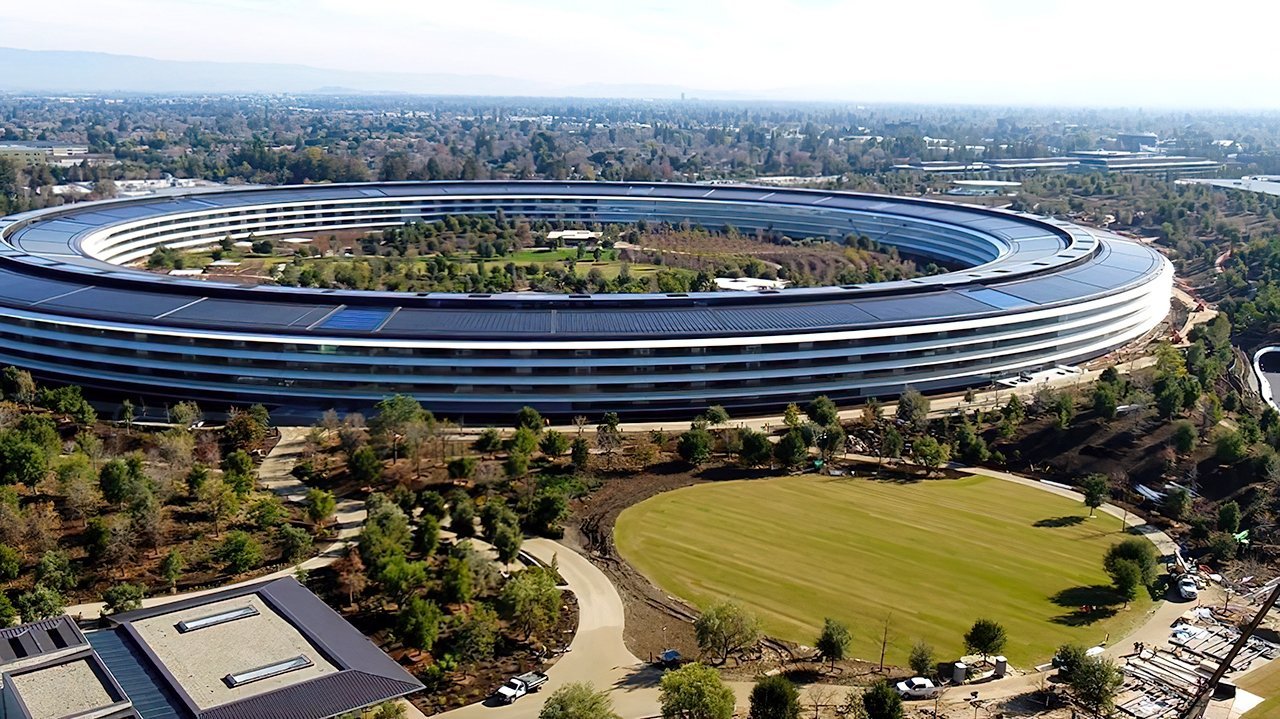
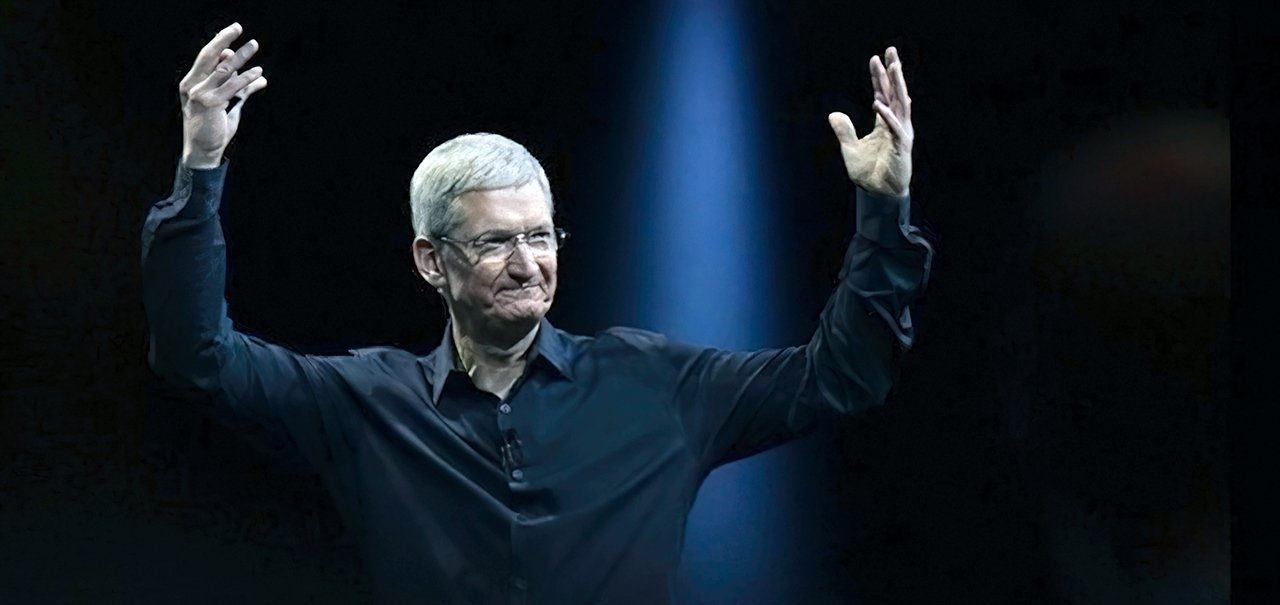

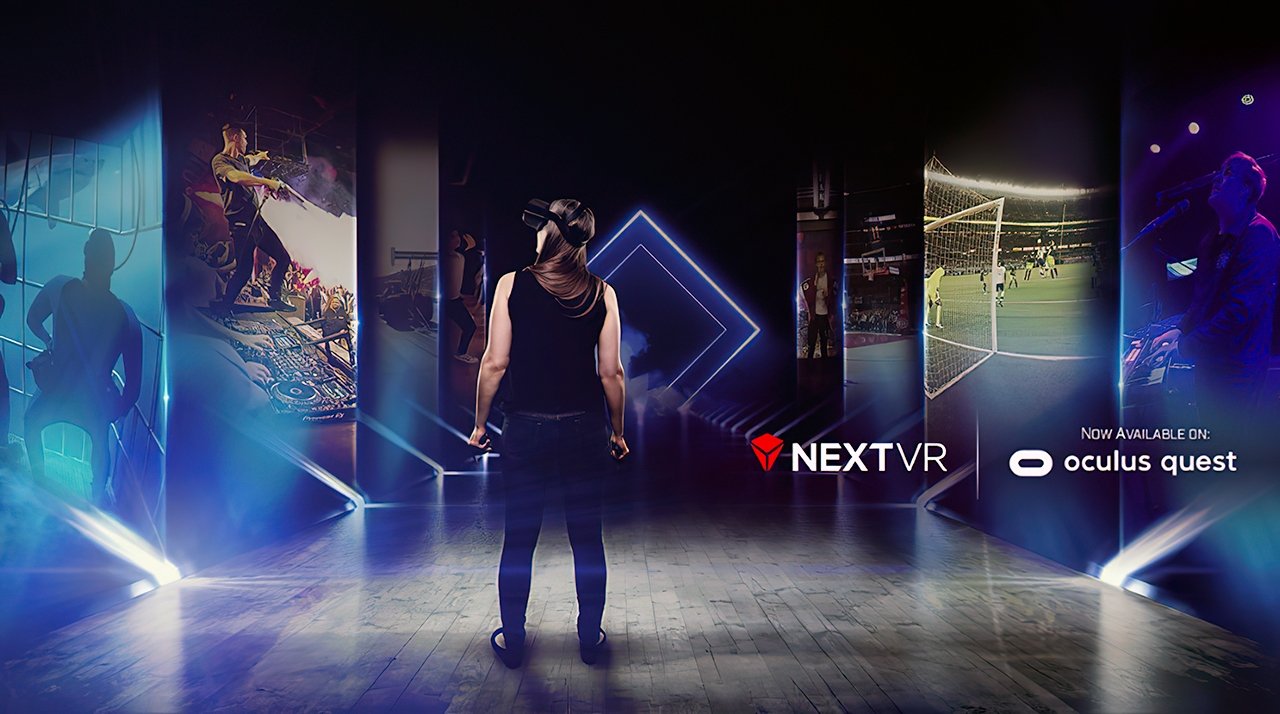
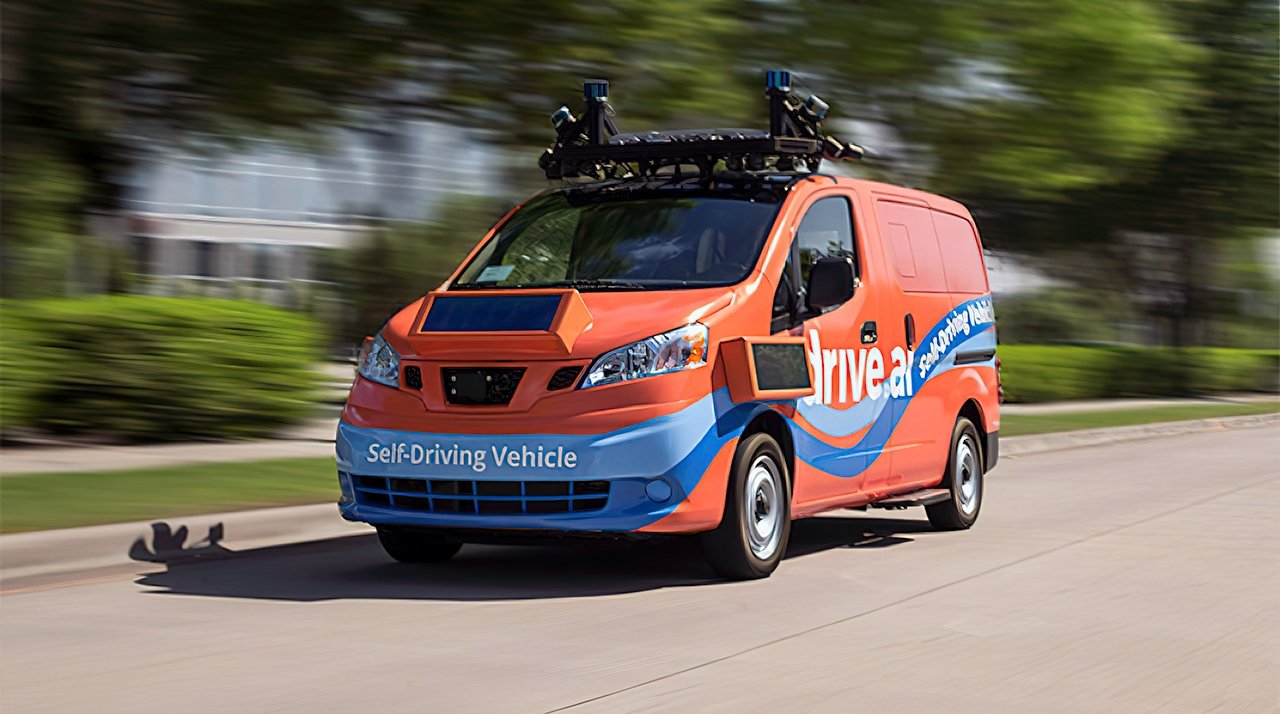

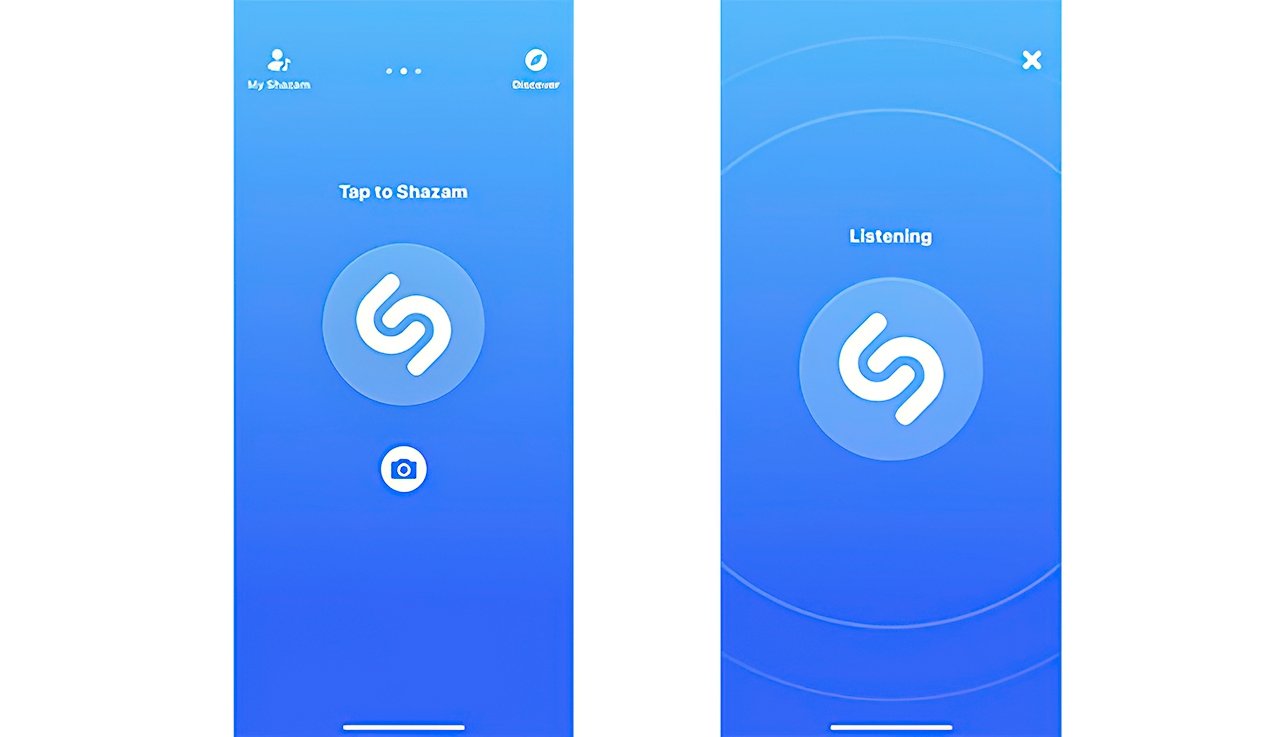
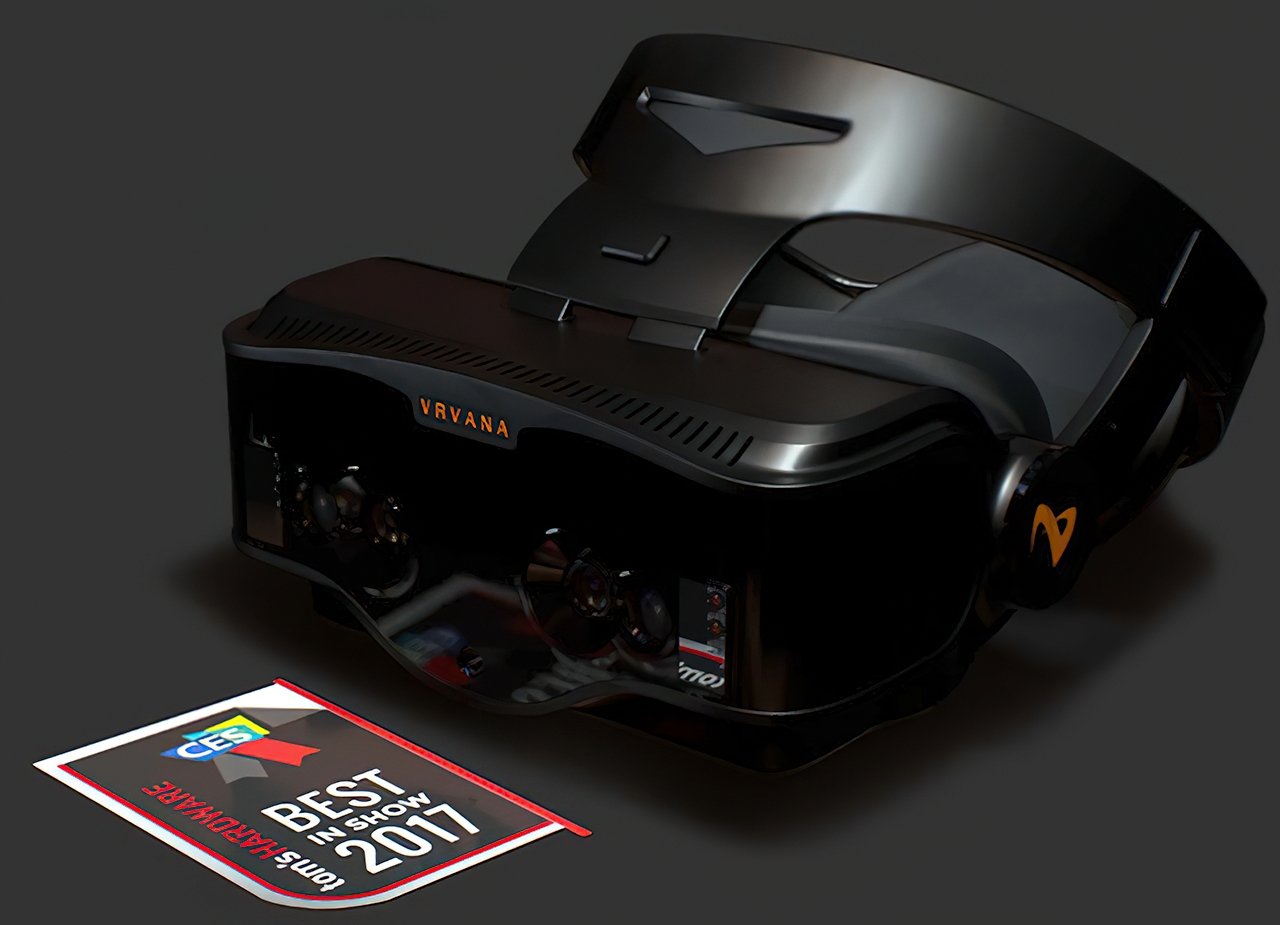
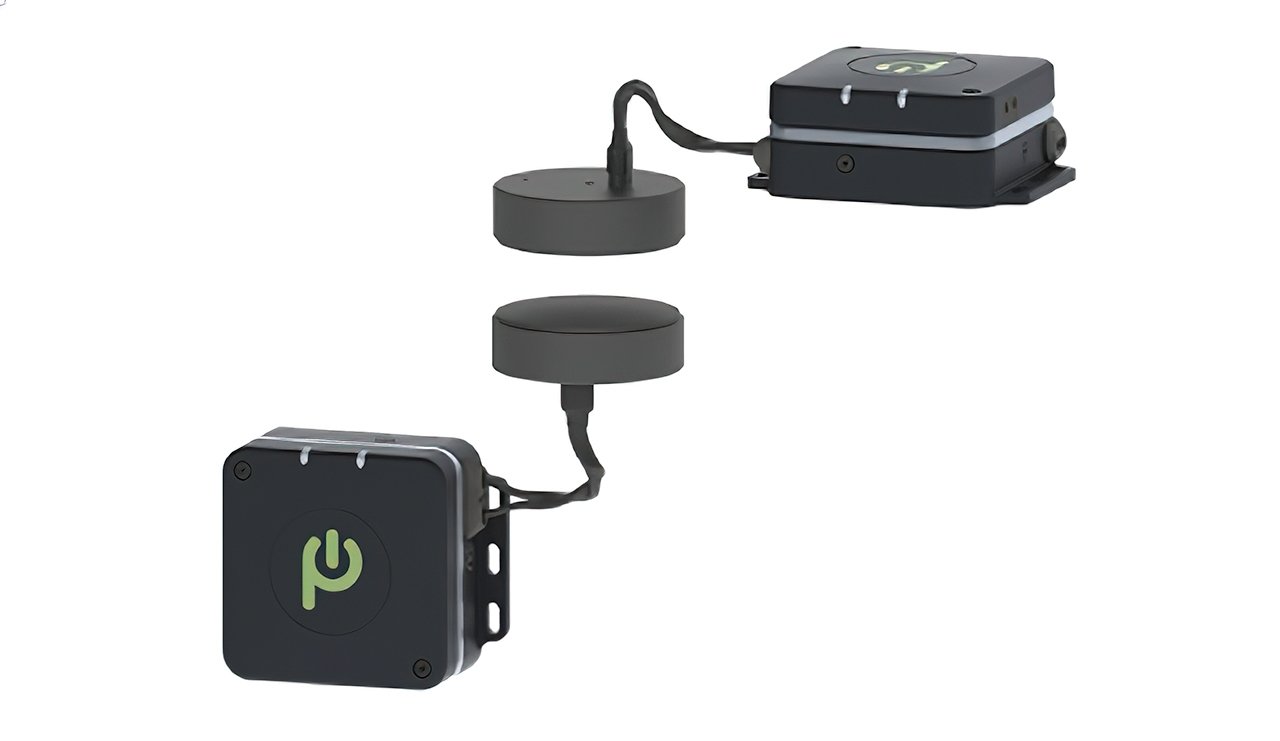

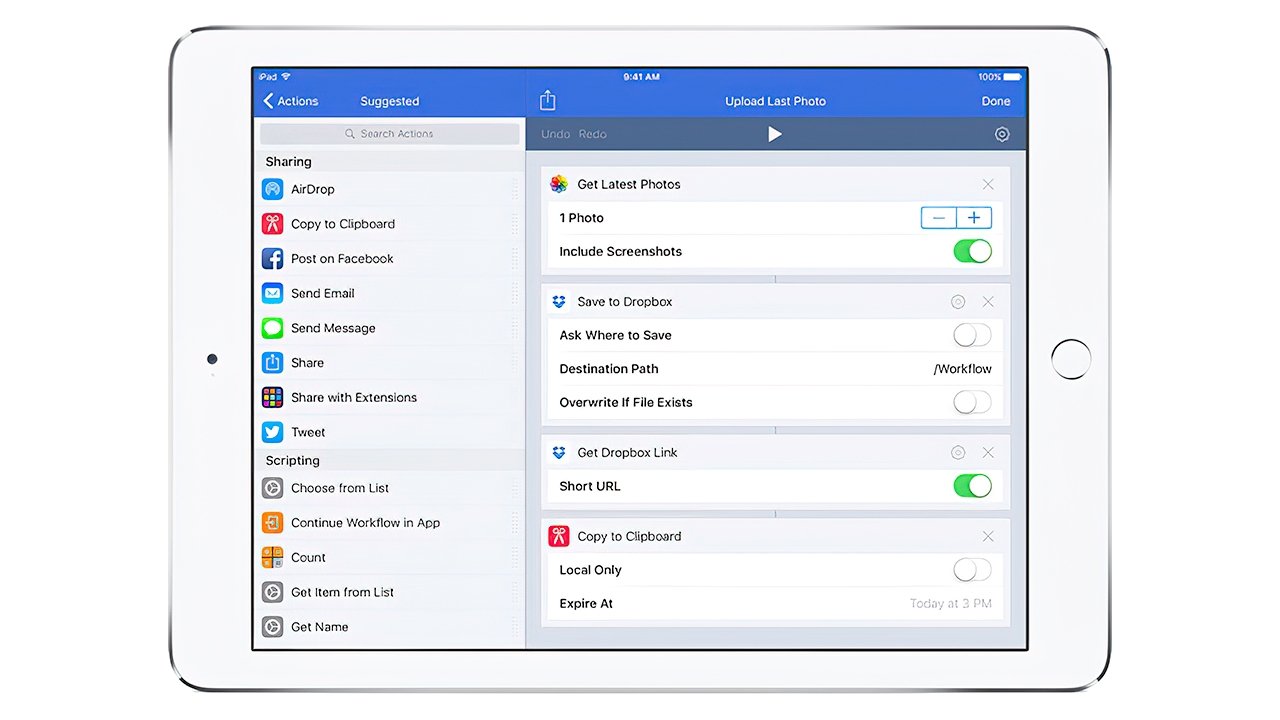
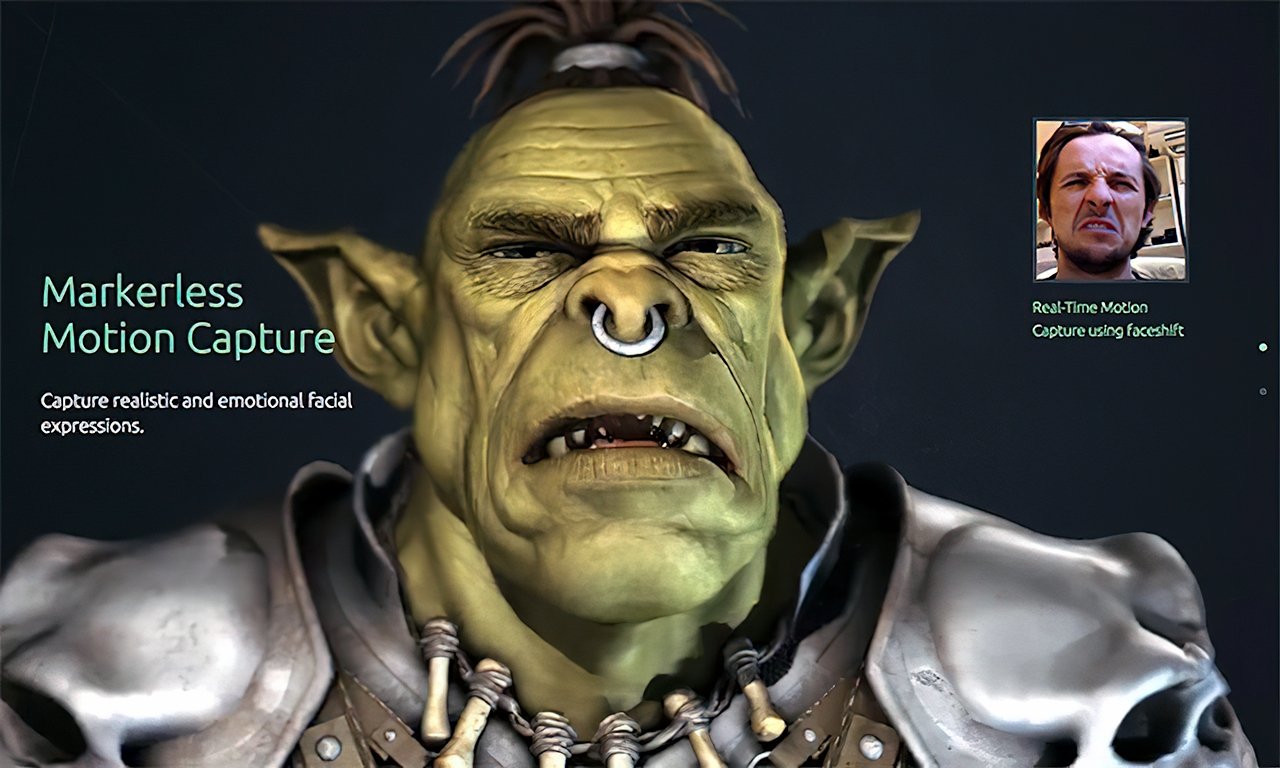

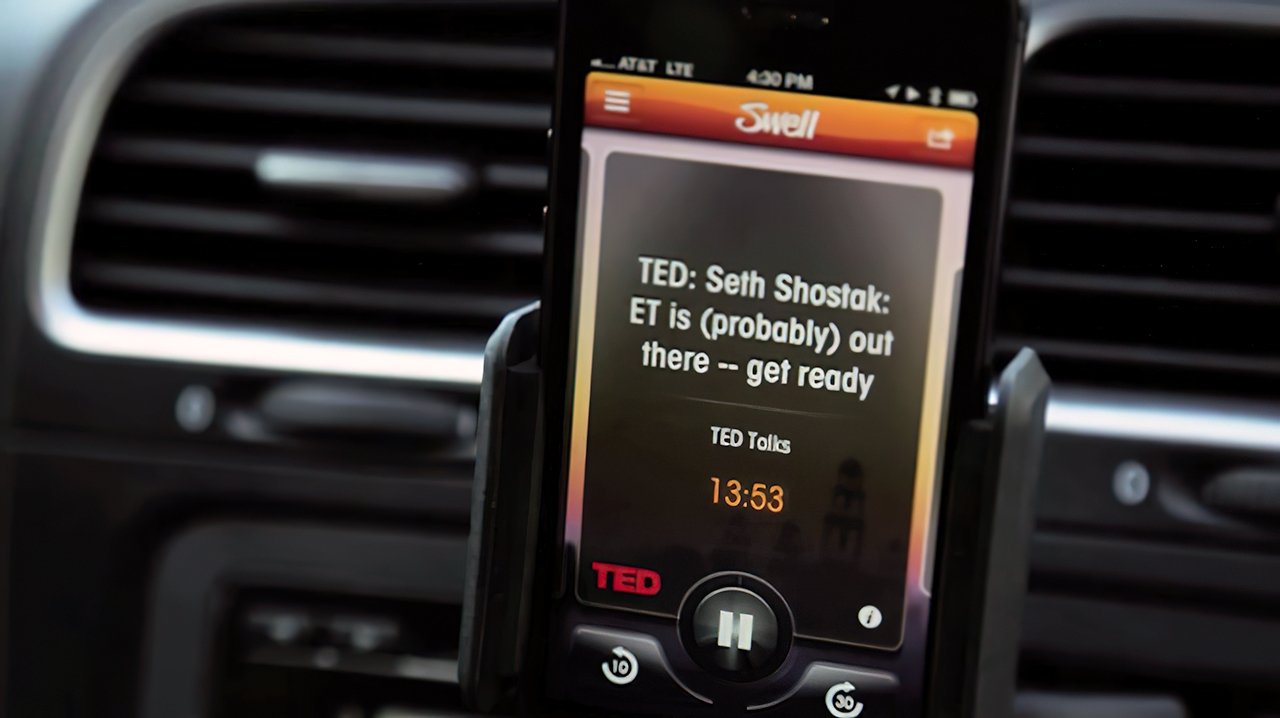

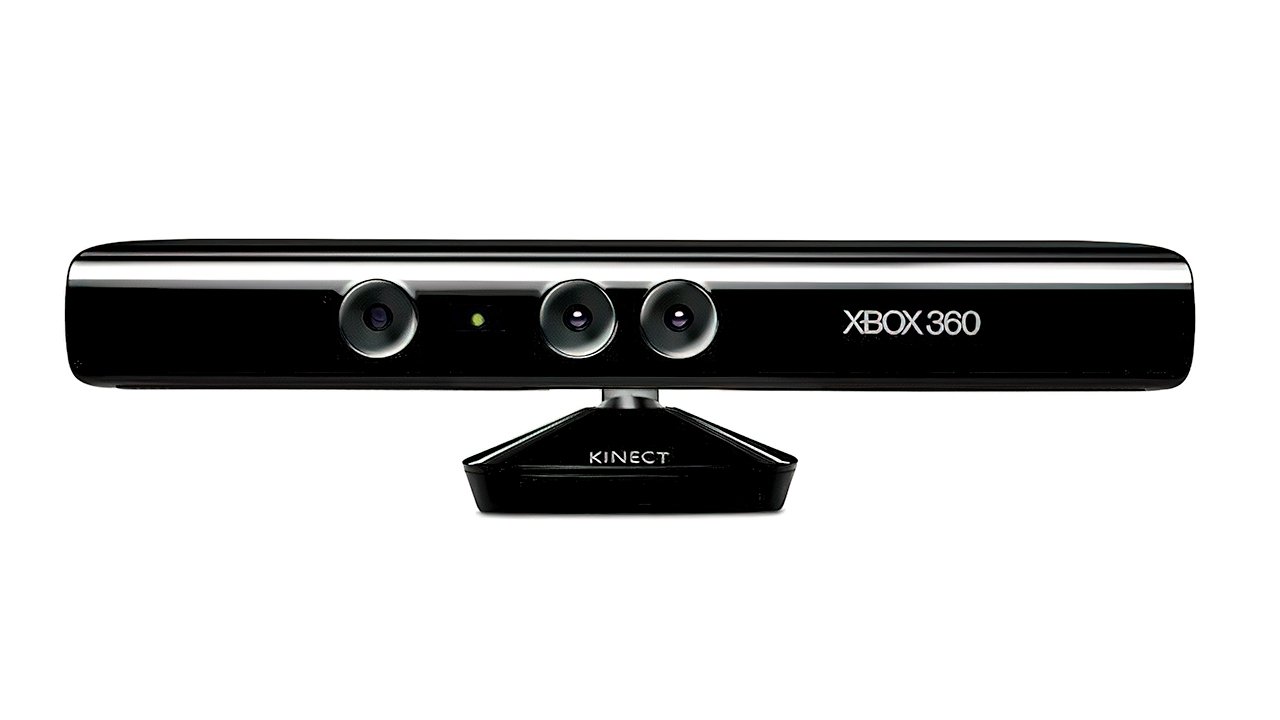
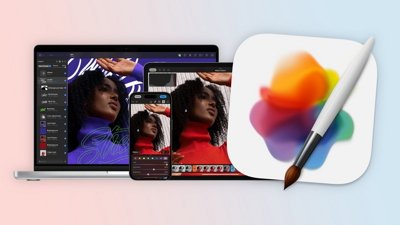
 Malcolm Owen
Malcolm Owen


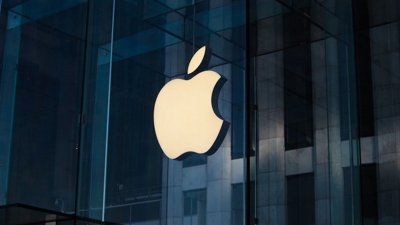
 Amber Neely
Amber Neely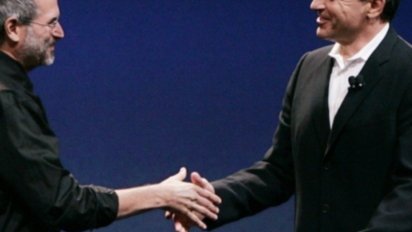

 William Gallagher
William Gallagher


